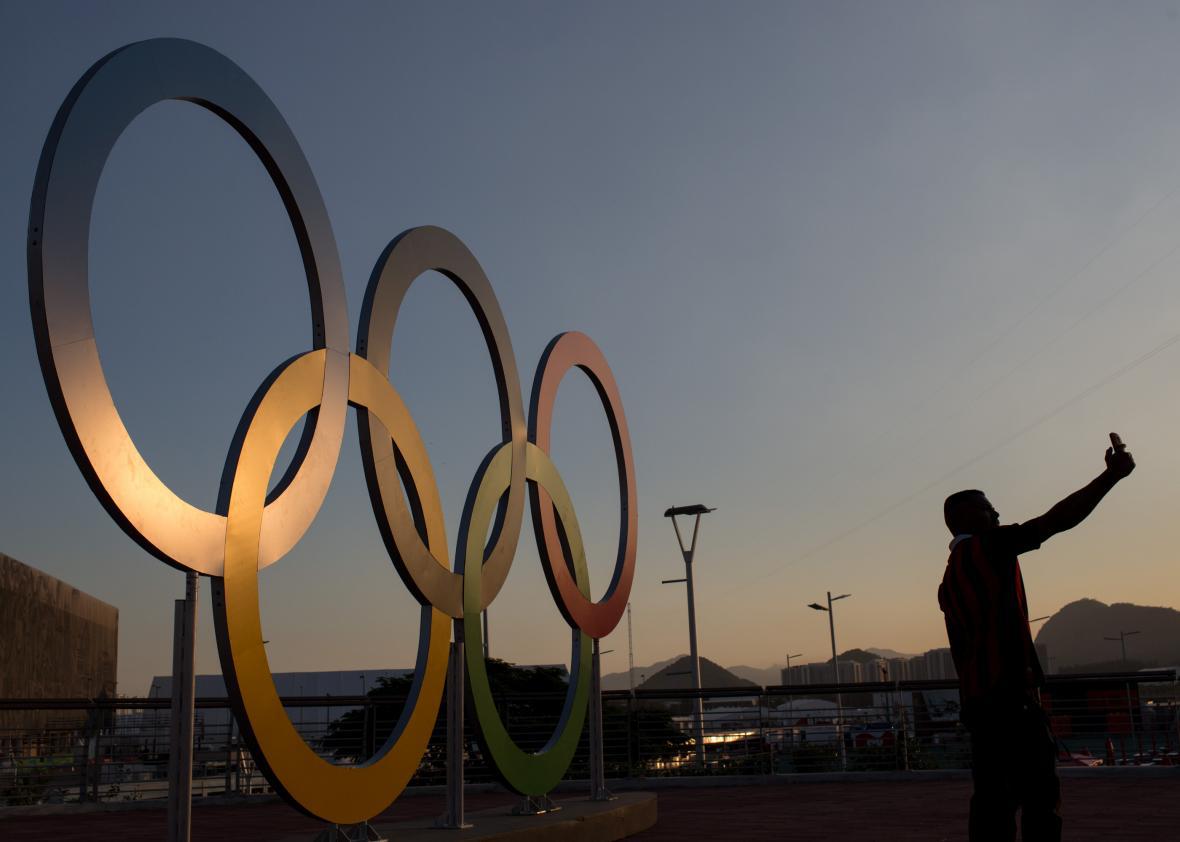On Monday, Nico Hines, the Daily Beast writer and editor who outed gay athletes at the 2016 Olympics, issued a formal apology and announced that he was returning to the website. For his disturbing story, Hines—who is straight—set up a profile on the gay hookup app Grindr and used it to trick Olympic athletes into chatting with him. He did not tell them he was a journalist on assignment unless they asked and described several athletes with enough detail that any reader could easily identify them. Some lived in oppressively anti-gay countries, meaning Hines’ boorish stunt put them at risk of reprisal back home.
The Beast initially retracted these identifying details, then took down the entire story with an apology. But Hines went radio silent for seven months, a public silence he broke for the first time on Monday. Acknowledging that his story “did not ask consent and did not advance the public good,” Hines wrote:
The article intruded into the lives of people who had a right to be left alone. For some readers it brought up old, ugly LGBTQ stereotypes. And I didn’t accurately represent myself during the reporting of the piece. These were all profound failures, and I’m sorry for them. … I should have recognized Grindr is more than a dating app—it’s become a safe space for a community which needs that safe space. …
I was insensitive to the fears that constantly grip some people’s lives and it was wrong to even introduce the possibility that someone’s privacy could have been compromised. That fear is all the more acute in some of the countries whose athletes were gathered together inside the Olympic village. For anyone who was left in fear for their safety back home, I am truly sorry.
His apology will not mean much to closeted athletes whose lives were endangered or to the openly gay athletes who were essentially entrapped then subject to ridicule for no good reason. Nor was it compelling to Cyd Zeigler of Outsports, who faulted Hines for waiting seven months to express remorse and questioned the sincerity of his “academic press release.” Personally, I suspect Hines’ apology is heartfelt and genuine, though I agree with Zeigler that it may be too little, too late. But the more interesting question, I think, is whether the internet will forgive Hines.
In the seven months since Hines disappeared, his name has become something of a punchline, especially on gay Twitter. His total withdrawal from the public eye, without so much as a word of regret or explanation, attracted a great deal of ironic speculation. After publishing one of the most notorious stories of 2016, he simply … vanished. Where did he go? Some hazarded a witty guess, turning him into a kind of meme in the process. Outward contributor John Paul Brammer captured the gist of the joke well in January:
And, of course, the skeevy tone of Hines’ article earned him instant infamy in certain corners of the internet. The original story contained a freaky mix of lubricious prurience and slut-shaming: Hines simultaneously boasted that world-class athletes might want to have sex with him—then sniggered at them for their interest in gay sex. It was a startling performance, not only unethical but also extremely weird.
Now Hines is back on the internet and will presumably begin publishing soon. Will anyone take him seriously? Can anyone, after he self-imploded so spectacularly, then scurried into hiding for seven months? Hines’ attempt to restore his reputation will test our ability to forgive a writer whose name has become synonymous with the violation of queer space. Perhaps Hines will prove his contrition to be genuine, or at least prove himself unusually adept at outrunning his past. Either way, I think we can all agree he should keep his work far, far away from anything having to do with queer people. Everyone makes mistakes, but some leave a mark.
